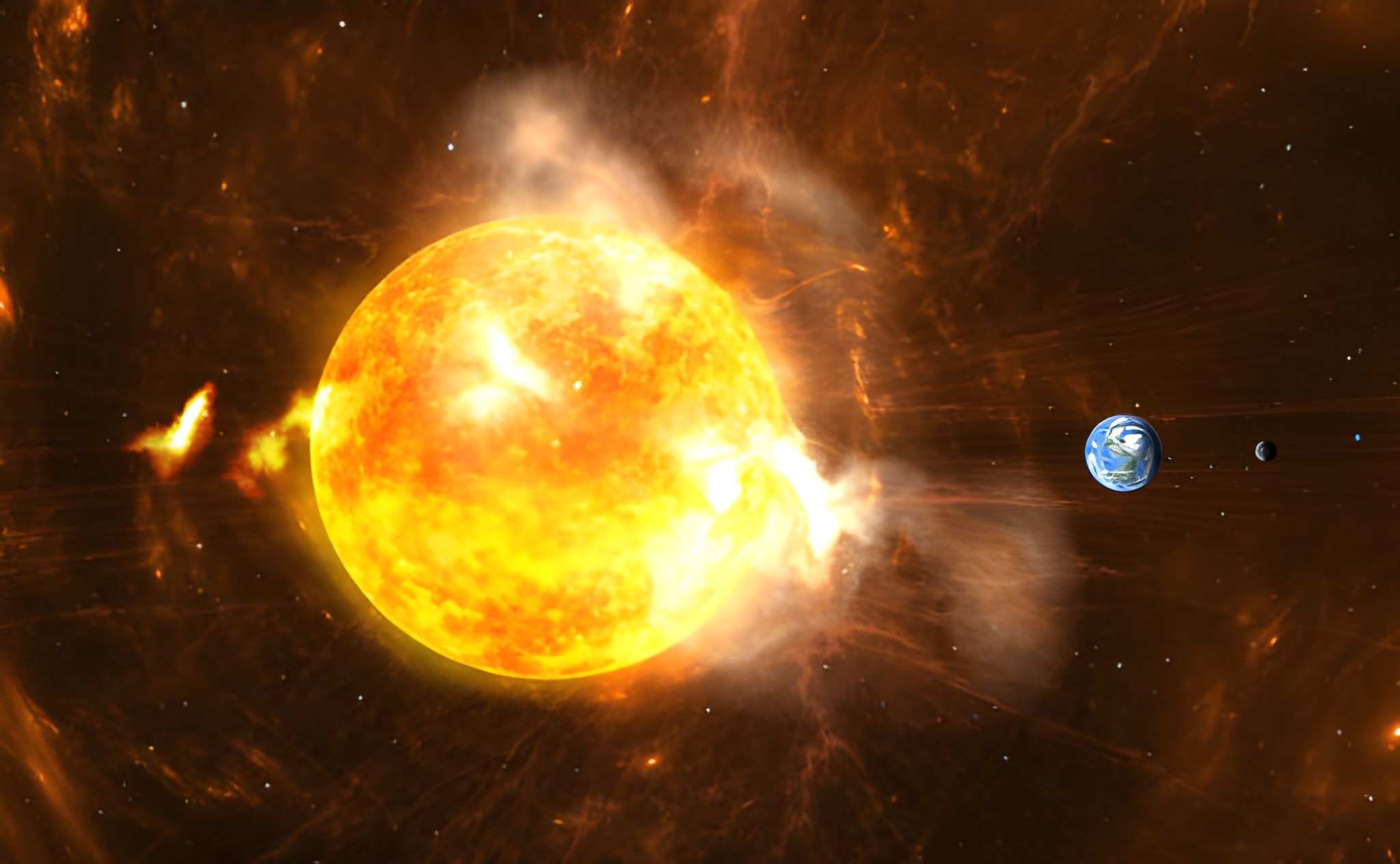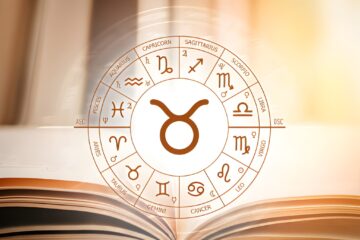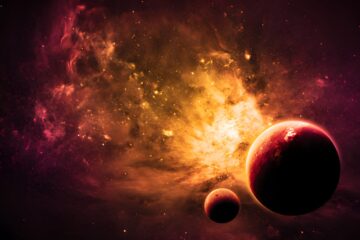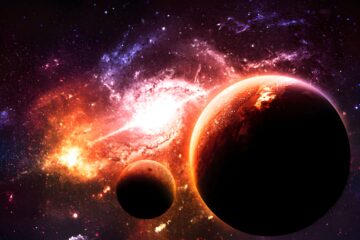The Sun, known as Surya or Ravi, stands as the royal luminary of Jyotish. In classical terms the Sun is a mild natural malefic because of its heat, but calling it “harmful” is lazy. The Sun in Vedic astrology is life force, authority, clarity, identity, and the inner demand to live with purpose. It shows how you burn, how you shine, and what you refuse to bow to.
Where the Sun sits in your chart, you want to be seen. Where it struggles, you feel dishonored, unseen, or restless until you prove yourself. A strong Sun in Vedic astrology gives dignity and direction. A weakened or afflicted Sun in Vedic astrology can show ego wounds, father issues, authority conflicts, or lack of inner confidence — but also the karmic pressure to build real self-respect instead of image.
What the Sun Represents in Vedic Astrology
The Sun in Vedic astrology represents vitality, soul will, authority, status, visibility, and moral backbone. It is the part of you that says “I am,” and expects the world to acknowledge it. It also carries themes of father, king, government, leadership, and the urge to stand upright in your personal dharma.
- Identity and ego: How you claim space in the world.
- Authority and recognition: What you want respect for.
- Vitality and health: Physical energy, heart, circulation, bones/spine tone.
- Father / authority figure: How you experience paternal energy, mentors, bosses, government, hierarchy.
- Purpose / calling: The arena in which you’re meant to act with courage instead of apologizing.
A well-supported Sun in Vedic astrology usually shows steady self-esteem, leadership ability, and the power to self-correct ethically (often helped by Jupiter). A stressed Sun can create posturing: loud pride on the outside, doubt on the inside.
How the Sun in Vedic Astrology Behaves by House
Below are recurring patterns. These are tendencies, not final verdicts — always read full chart context.
- Sun in 10th house: Public life, career ambition, visibility. Often linked to leadership, authority, or work connected to government, administration, or institutions. The Sun loves the 10th.
- Sun in 11th house: Networks, status, social reach, elder siblings, gains. This can give influential circles or reputational leverage.
- Sun in 3rd house: Courage, initiative, self-promotion, strong voice. Often entrepreneurial or direct in communication.
- Sun in 4th, 8th, or 12th house: These are more private / moksha zones. The Sun’s fire can feel trapped here, creating inner unrest, emotional agitation, sleep disturbance, or authority tension. In the 12th specifically, the Sun is said to be in Marana Karaka Avastha (a weakened state), which can show ego drain, exile themes, or distance with father unless redeemed by strength or benefic aspects.
- Sun in 6th house: Can point to work through service, conflict management, resilience against rivals. If afflicted, watch heart, blood pressure, inflammation, or burnout.
- Sun in 7th house: Partnership becomes a battlefield for ego balance. If well supported, you attract dignified partners. If harsh, you may clash with spouses or business partners over control and respect.
In general, the Sun in Vedic astrology performs well in Upachaya houses (3, 6, 10, 11) — houses that improve with time. The older you get, the more skillfully you carry your Sun.
Strength, Dignity, and Combustion of Planets Near the Sun in Vedic Astrology
The Sun is bright. Too bright. When a planet comes too close, that planet becomes “combust,” meaning its own light is drowned out by Surya. A combust planet can still act, but it struggles to express its gifts cleanly. For example, combust Venus may twist love into pride or performance. Combust Mercury can show anxiety in communication or decision-making, especially if the degrees are extremely tight. This “burn” effect is one of the most important technical ideas linked to the Sun in Vedic astrology.
Some classic dignity notes about the Sun:
- Sun exalted in Aries: Bold will, raw confidence, visible leadership. Can become domineering if unsupported by empathy.
- Sun in Leo (own sign): Natural sovereignty. Wants to be respected without having to shout. Strong pride, strong center.
- Sun debilitated in Libra: The ego negotiates instead of declares. This doesn’t mean “weak person.” It often means “I form identity through relationship, validation, aesthetics, diplomacy.” If Venus (Libra’s lord) is strong, the fall of the Sun can be healed (classic Neecha Bhanga logic).
Important: a “weak” Sun in Vedic astrology is not failure — it’s curriculum. You learn self-worth the hard way, instead of being handed it at birth.
Key Planetary Combinations Involving the Sun in Vedic Astrology
Combinations change tone fast because the Sun lights up whatever it touches:
- Sun + Saturn: Duty, structure, pressure. Can create father/authority friction, but also intense work ethic and endurance in institutions.
- Sun + Jupiter: Moral voice, respect, recognition. Can inflate self-righteousness if ungrounded.
- Sun + Venus: Charm, grace, aesthetic presence. But if Venus is combust, relationships can feel performative or transactional until maturity.
- Sun + Mars: Warrior signature. Drive, assertion, competitiveness. Can be confrontational or fearless, depending on dignity.
- Sun + Mercury (Budha–Aditya Yoga): Clear speech, intellect, persuasive authority — especially if Mercury is not badly combust.
- Sun + Moon: Soul (Sun) and mind (Moon) fuse. This can give intense focus, strong identity, and emotional will — or emotional rigidity, depending on sign/house.
- Sun + Rahu (eclipse / Grahan flavor): Ambition goes feral. You may chase status, attention, power. If mature, this becomes visionary leadership; if immature, it becomes ego inflation or scandal risk.
- Sun + Ketu: Ego turns inward. Can make someone humble, detached, spiritual — or emotionally unavailable and self-isolating.
Functional Nature of the Sun in Your Chart
The Sun in Vedic astrology is not “good” or “bad” by default. Its functional nature depends on your Ascendant (Lagna) — what houses the Sun rules and what agenda it carries in your chart.
- Often more helpful / auspicious: Aries, Taurus, Leo, Scorpio, Sagittarius ascendants. Here, the Sun’s agenda can align with core identity, status, dharma, leadership.
- More challenging or mixed: Gemini, Pisces (and partly Capricorn). Here, the Sun can rub against other priorities, causing stress with authority or father figures.
- For Cancer ascendant: The Sun is generally neutral and acts according to its dignity, house placement, and planetary company.
Because of this, two people can both have “Sun in the 10th house,” and one becomes respected leadership material while the other burns out arguing with bosses. Functional role decides whether the Sun in Vedic astrology is building you or burning you.
Sun Mahadasha in Vedic Astrology: What It Activates
The Sun Mahadasha (about six years in Vimshottari) is loud. During Sun Mahadasha in Vedic astrology, themes around ego, reputation, career visibility, father archetype, authority, and health become unavoidable.
In this window:
- You are pushed to define who you are publicly (10th/11th house style) or internally (4th/12th house style), depending on Sun’s placement.
- Conflicts with authority surface if you’ve been faking respect.
- Your physical energy and stress tolerance get tested — especially heart, spine, blood pressure, burnout threshold.
- If the Sun in Vedic astrology is dignified and supported by benefics like Jupiter or Venus, recognition, leadership, promotion, or status upgrades are common.
When the Sun rules or occupies key houses related to career (10th), gains (11th), or dharma (9th), its Mahadasha can put you “on stage.” When it sits in the 12th or 8th, the same Mahadasha may feel like crisis, therapy, spiritual stripping, or withdrawing from noise to rebuild from the inside out.
Important Notes on the Sun in Vedic Astrology
Is an exalted Sun in Aries bad for the father–child relationship?
An exalted Sun by itself does not damage the father bond. The father story depends on the 9th house, its lord, and aspects. A strong Sun in Vedic astrology usually uplifts paternal presence unless it directly afflicts the 9th lord or 9th house.
Does Sun in the 12th house mean the ego “dies”?
The 12th house is retreat, isolation, surrender. It is called Marana Karaka Avastha (a weakened state) for the Sun, so confidence or father support may feel distant. But if the Sun is strong by sign, gets benefic aspects, or forms a Vipreet Raj Yoga, it can still give worldly success — just with a quieter, behind-the-scenes profile.
If a Raj Yoga forms in a Dusthana like the 12th, is it useless?
No. Raj Yogas in the 6th/8th/12th can absolutely manifest, but usually as “success through struggle.” You rise because you endure something hard. Wins come with scar tissue.
Does a debilitated Sun in Libra doom confidence?
Debilitation tones down blunt ego, but can create diplomacy, aesthetics, and strategic charm. If Venus (Libra’s ruler) is strong, or there is Neecha Bhanga (cancellation of debility), the Sun recovers. A “fallen” Sun in Vedic astrology can become refined authority over time.
Does Sun–Rahu always equal arrogance?
Sun–Rahu is volatile. It can inflate ambition and spotlight hunger. But with Saturn discipline and Jupiter ethics, the same combo can create fearless, original visibility. Without grounding, it can slip into image addiction or scandal.
FAQ: Practical Questions About the Sun in Vedic Astrology
Can I strengthen a weak Sun by wearing a Ruby?
A Ruby is only safe if the Sun is a functional benefic for your lagna. For Aries or Leo ascendants, it can support purpose, authority, and vitality. For Gemini or Pisces ascendants, pushing the Sun can actually worsen ego tension or clashes with authority. Gemstones amplify — they don’t moralize.
What does Sun in the 9th house say about father and fortune?
Sun in the 9th often boosts moral drive, respect for teachers, and dharmic alignment. It can test father relations if afflicted or lone ruler of that house, but with benefic support it gives guidance, blessings, and purpose-driven luck.
Is Grahan Yoga (Sun with Rahu or Ketu) always bad?
Think “intense,” not “bad.” Sun–Rahu can create ego inflation or clashes with authority. Sun–Ketu can hollow out ego and push spiritual seriousness. Benefic aspects (Jupiter, Venus) decide whether that intensity shows up as breakdown or awakening.
Can a debilitated Sun bounce back?
Yes. Neecha Bhanga Raja Yoga (cancellation of debility) can elevate an initially humbled Sun into refined authority. Translation: you learn humility first, command later.
What actually happens in Sun Mahadasha?
Sun Mahadasha (about six years in Vimshottari Dasha) highlights identity, visibility, health, father themes, and public role. If the Sun in Vedic astrology is strong in your chart, you’re asked to step forward. If it’s wounded, you’re asked to repair self-respect without ego theatrics.
Closing Thought (and What to Do Next)
The Sun in Vedic astrology is not just “confidence.” It’s the contract your soul signed about how loudly you’re meant to exist. Sometimes that shows up as fame. Sometimes as service. And, sometimes as a private vow you refuse to betray.
Want this translated for your actual chart? Get a personal reading with Much Needed Astro — we’ll map your Sun’s dignity, combustion risk, Mahadasha timing, and father/career themes in plain language so you can act on it, not just read about it.
“`




